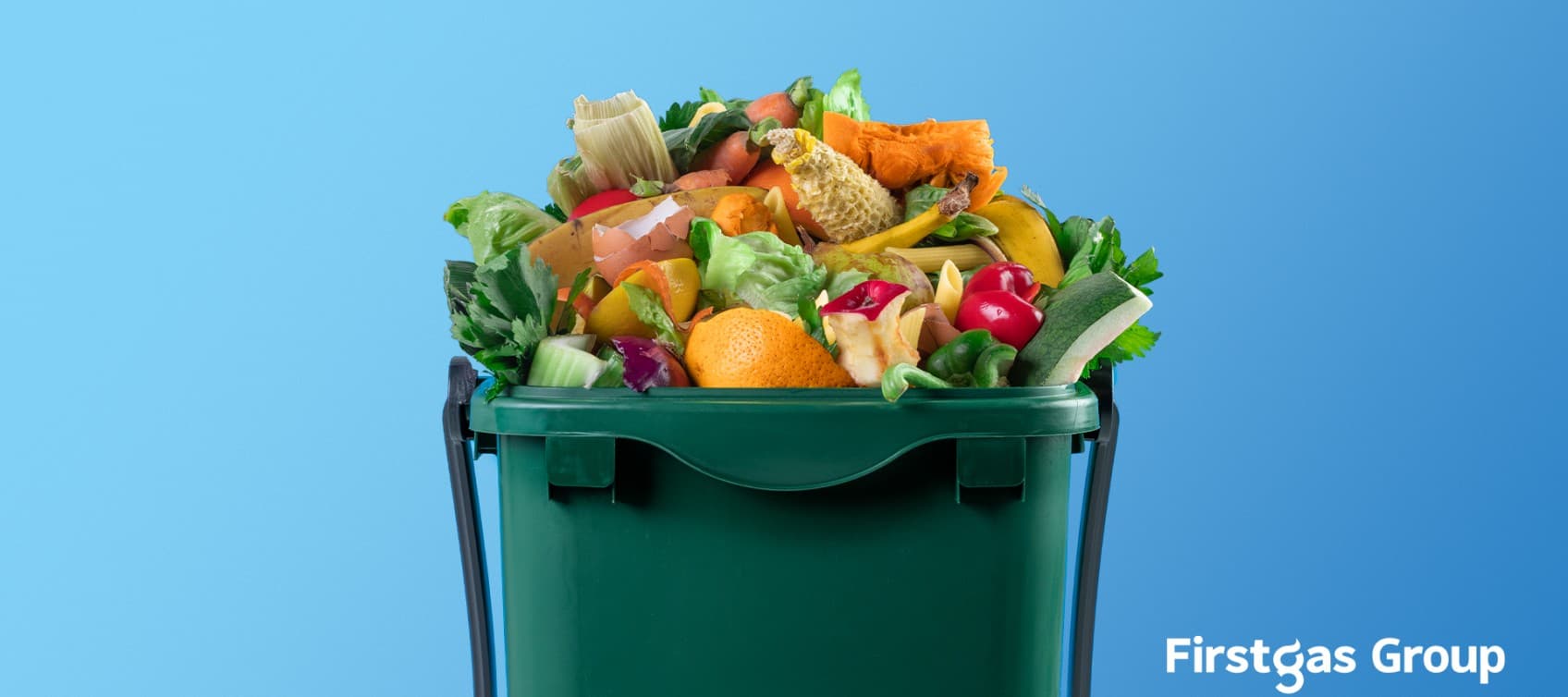Clarus (Formally Firstgas Group) is building a state-of-the-art plant to upgrade Ecogas’ biogas into renewable gas to inject into the gas network – on track for deployment by Q2 2024.
Clarus (Formally Firstgas Group) company, First Renewables Limited, and Ecogas have announced the next phase of their partnership that will realise a large-scale renewable gas to pipeline project in Aotearoa. The state-of-the-art facility to be built at Ecogas’ Organics Processing Facility in Reporoa, will start transforming kerbside food waste into biomethane, a valuable source of renewable gas, from the second quarter of 2024.
In the future Clarus (Formally Firstgas Group) would like to see the development of multiple renewable gas to pipeline facilities in New Zealand, that could produce enough gas to supply all residential users and three quarters of commercial gas users with low carbon gas, equivalent to taking 415,000 petrol cars off our roads.
James Irvine, Future Fuels General Manager at Clarus (Formally Firstgas Group) said, “Food scraps and other organic waste can actually be used for something highly valuable. Not only can we avoid sending food waste to landfill and the environmental consequences that this has, but we can also turn it into low-carbon renewable gas and inject it into the gas network, which is a very positive story for the future of energy in New Zealand.”
Irvine explained, “This is a first of its kind for New Zealand and once up and running the initial production estimates from this one facility will supply enough renewable gas, equivalent to supplying up to 7,200 homes* and will avoid emissions from natural gas of about 11,000 tonnes of CO2e per year”.
Alzbeta Bouskova, General Manager from Ecogas said, “This joint project is a great example of a low carbon circular economy in action. Anaerobic digestion is the most environmentally responsible way to recycle organic waste and works in tandem with cities and towns facing waste challenges and companies trying to reduce their emissions. Injecting this renewable gas into the pipeline is proven technology overseas and we are excited to be part of bringing it to New Zealand.”
First Renewables Limited, a Clarus (Formally Firstgas Group) company, has purchased state of the art upgrading technology to turn Ecogas’ biogas into pipeline ready biomethane, the low carbon equivalent of natural gas. The equipment is due to arrive in the country by September 2023 and installed at the Ecogas site.
Irvine continued, “While we are making good progress, with the upgrading equipment soon to land in New Zealand, we have some catching up to do as this technology is already commonplace in many European countries.
Internationally, renewable gas has been identified as a key pillar of decarbonisation. There are more than 203 operational biogas facilities in Germany and Denmark, and those countries are currently using biomethane to supply 20% of their natural gas grid, with a goal to increase to 100% by 2050.
Irvine commented, “The demand for biogas is growing. There has been over $6.1 billion dollars of investment into biomethane globally in the last four months, demonstrating the strong future this
technology has in reducing carbon emissions. We’re really excited to get started and see what this could mean for Aotearoa.”
In fact, several councils across New Zealand are already on board and have launched kerbside collection for organic waste, with Auckland Council about to roll out its Rukenga Kai food scraps collection from the beginning of April. All food scraps collected from Auckland urban households will be transported to the Ecogas facility to be transformed into renewable gas.
Bouskova said, “Our Reporoa Organics Processing Facility is New Zealand’s first commercial scale food scrap processing facility, using advanced technology proven overseas. At its full capacity, it produces renewable energy, biofertiliser and soon renewable gas from 75,000 tonnes of inedible food scraps and other organic residues from across the motu.
“In addition to Auckland, we’re seeking interest from other councils, businesses and food processors who want to get involved in taking their food waste full circle,” said Bouskova.
To find out how the food scraps to pipeline gas works, click here.
* Calculation based on 22GJ p.a. average for a residential consumer. Estimated max production is 160TJ = 7,200 houses.





